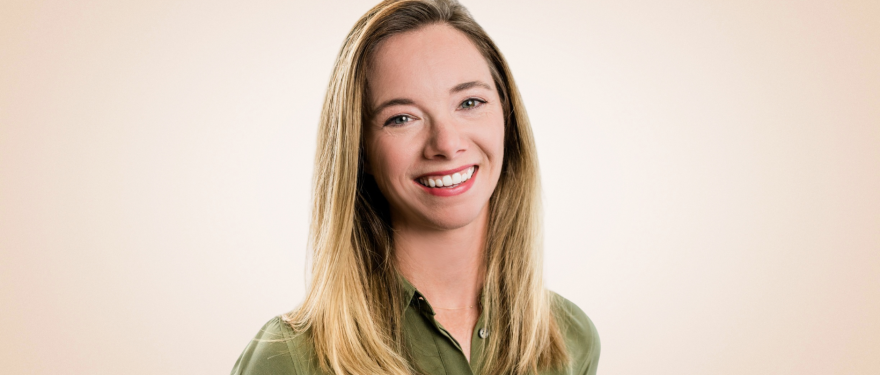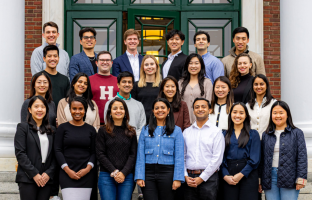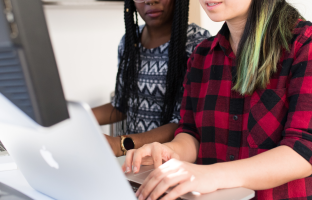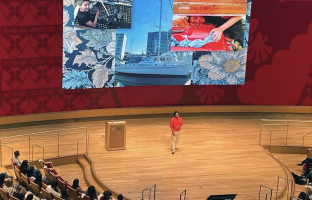I found my professional North Star as an undergraduate student while studying abroad in rural Tanzania. Our work in clean water access was a light bulb moment for me, clarifying the ways in which business and social impact can work together to be a force for good in the world. Business is a driving force in our world, whether we like it or not. So, what are we going to do with that driving force?
I also wanted my career to be grounded in the true rigor of business, and the marriage of business rigor with positive impact in the world. These guiding lights led me to Harvard Business School.
I kept hearing that the mission of HBS was to create leaders that make a positive difference in the world. I was eager to work with the Social Enterprise Initiative and Conference. At HBS, I was a student in pilot classes Reimagining Capitalism and Innovating for Sustainability, and I met classmates who also had dreams of creating positive social impact through business.
When my husband and I moved from New York City to Park City, Utah, we knew we wanted to start a family. I could have stayed with my consulting job, but it would have meant traveling a lot to my clients on the coasts. So instead, I joined the Sorenson Impact Institute as the Managing Director and started teaching at the University of Utah, developing the school’s first social impact class and training the next generation of impact leaders.
Along the way, my husband and I had a son. Three months after becoming a mom, I went back to work, and I knew right away I wanted more time at home with him. I thought I would fall back into work, but I found that it wasn’t what I wanted. As someone who was used to chasing career goals, it was an unexpected discovery.
Then, serendipitously, I got an email from the HBS career office about an upcoming Career Transitions workshop hosted by HBS Senior Advisor Dr. Timothy Butler. During the workshop, something that resonated with me were the themes of “needs” and “obligations,” personally and professionally. This wasn't about my son’s needs, it’s about my own needs. But it was still an identity crisis to find myself, for the first time, not chasing leadership positions or partner status. To say, “for right now, this is what works best for me.”
I worked with the Sorenson Impact Institute and University of Utah to change my roles so I could still add value while staying committed to my young family.
Now that my son is two, I’m starting to think more holistically about my career. Instead of one job that’s all-consuming, I’m a managing director, a teacher, on the board of directors, and am beginning to look into public speaking opportunities. I’m thinking about the different pieces of what makes a full career for me.
I was having dinner earlier this year with a friend who is a career coach. We were talking about the career versus family identity crisis, and the emotional difficulties of balancing work life and family life. She said to me “what were your big wins from the past year?” Thinking about it, I could confidently say I felt good about my commitment to my work and my commitment to my son. And I feel excellent about that.





.png&w=80&h=80)

